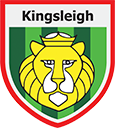History
Subject Intent
“History is the study of our past, as defined and created by the actions and decisions of those that have gone before us.” – Doull, Russell and Hales. Mastering Primary History
Our curriculum has been designed to enable all pupils at Kingsleigh Primary School to acquire, sequence and develop the knowledge needed to understand local, British and world history.
Our pupils are taught the granular knowledge of when, who and where; they then apply these using the procedural knowledge, allowing them to work like historians through our carefully planned learning journey from Pre-School to Year 6. We have also identified key themes in historical learning that are revisited throughout Key Stage 1 and 2; legacy, exploration, invasion and settlement, empire, technological advancement and societal change. Through this journey, pupils develop an understanding of time and chronology, identifying characteristic features, analysing cause and consequence, interpreting evidence and asking questions about the past. This supports pupils to understand the interconnected nature of the key periods of history studied as one narrative through their time at Kingsleigh.
Subject Implementation
At Kingsleigh, our time periods are centred around an enquiry question; this allows all children to conduct historical investigations and act as a historian.
During Reception, children begin to develop an understanding of the past through identifying changes in their own family and every day objects. They start to acquire basic historical vocabulary such as past, present, future, old and new in order to establish that the past is distinct from the present. We use picture books and stories to consider old and new.
Children in Key Stage 1 then build on this knowledge and about key historical figures, events and periods of time both within and beyond living memory. Year One learn about their personal history and family tree, as well as Queen Elizabeth the Second. These are opportunities to study changes within living memory and significant individuals. They then learn about the Great Fire of London as a significant event from beyond living memory. In Year Two, the children study the Victorians to compare experiences between time periods. At the end of the year, they complete a local area study of the history of Bournemouth and Poole.
In Key Stage 2, children learn about British History chronologically, starting with Prehistoric Britain in Year 3, through to World War 2 in Year 6. They also learn about ancient civilisations (Egypt, Greece and the Mayans) who have shaped history from across the world. Children acquire their historical knowledge through the reading of quality texts, educational visits and looking at historical sources to find evidence, including artefacts. Children's knowledge is assessed through a carefully planned assessment end point at the beginning of the next unit to inform planning and classroom practice.
Knowledge Organisers
Year 1
Year 1 - Spring - History Knowledge Organiser
Year 2
Year 2 - Spring - History Knowledge Organiser
Year 3
Year 3 - Spring - History Knowledge Organiser
Year 4
Year 4 - Spring - History Knowledge Organiser
Year 5
Year 5 - Spring - History Knowledge Organiser
Year 6
Year 6 - Spring - History Knowledge Organiser

